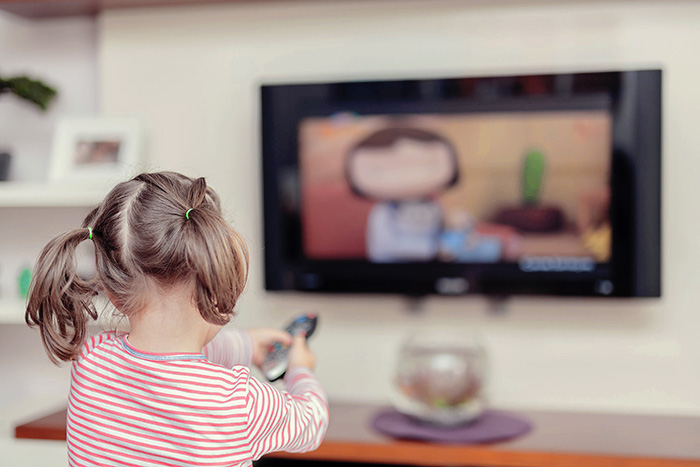
I used to work as a babysitter in a family where cartoons were a kind of reward and, accordingly, a ban on them was a punishment. However, when their third baby was born, they loosened their grip. When I returned to work for them after a three-month break, I found that the children had changed beyond recognition. The middle child, who was five years old, changed from a cheerful and active boy into a nervous and restless child, and became very interested in zombies and monsters. Previously, he had been able to play independently, making things up and coming up with creative ideas. Now, however, we had to make him go outside, and if he went outdoors, he would come back five minutes later and say, “Been there, can I watch cartoons now?” The same thing happened to his eating habits. He almost quit eating. He would pick some food with a spoon, leave it on the plate, and ask for cartoons again.
There were more whims, or rather, they became permanent.
It was virtually impossible to wake up the youngest child to school in the mornings. Every time it all followed the same scenario: I would come into his room, carefully trying to wake up the little one. He would hardly wake up and immediately start crying, “I’m tired,” “I’m sick,” “I’m not going to school today.” I had to sit next to his bed and say that I understand him perfectly, but once you decide that you go to school, you have to go to school. Sometimes I didn’t have the patience, and I would literally drag him into the bathroom to wash up. Day after day, it was becoming unbearable. I was beginning to cringe when I heard the word “cartoons,” and quietly detested everything that had to do with those very cartoons.
At some point, after another scandal, the parents finally had enough of it, and threw away the computer (fortunately, by then the TV set had already been accidentally smashed by a ball and gathered dust in the attic). We were bracing ourselves for a “withdrawal”. The news that there were going to be no more cartoons was met with a scene. The question “When are we going to watch cartoons?” was the most common one in the house for the first few days.

By day three, children’s books started to disappear from the bookshelf; children finally got interested in them. We began reading together: either I or their parents read different stories to the kids. A week later, getting up in the morning became much easier, and the whims went away. The youngest child began to play on the street and inventing new things again. We got down to building fortresses on the veranda and playing soccer. The youngest boy started learning to skateboard in a skate park with the older ones. We went there for a couple of hours a day after school. A month later, he showed a desire to learn to read, and we spent days studying letters and putting together simple words. Soon enough, he started reading on his own.
I am not going to argue for or against cartoons. Every parent should make up their own mind. Nonetheless, my experience and observations suggest that vivid, colorful, and musical cartoons take away the opportunity for a child to have a creative attitude towards his or her life: when everything is ready-made, exciting and fun, there is no need to invent anything. Children have a passion for learning new things. They have a healthy curiosity, the ability to play and imagine by nature. Lydia, the daughter of Korney Chukovsky, the author of many popular children’s books, recounts a situation when her father forbade her from disturbing one of her brothers while he was playing alone. Korney Chukovsky insisted that the boy was not to be interrupted from exercising his imagination in any way. Of course, parents find it handy to have their child sitting down and watching cartoons, which lets the parents do something they need to do. There is always a lot of household chores, after all, isn’t there? On the other hand, it can also signal that the parents are unwilling to take care of their child and play with him or her. Perhaps you just need to maintain the balance to ensure that cartoons aren’t your child’s only pastime. Do not deprive him or her of the opportunity to be curious and learn about the world that surrounds him or her.



